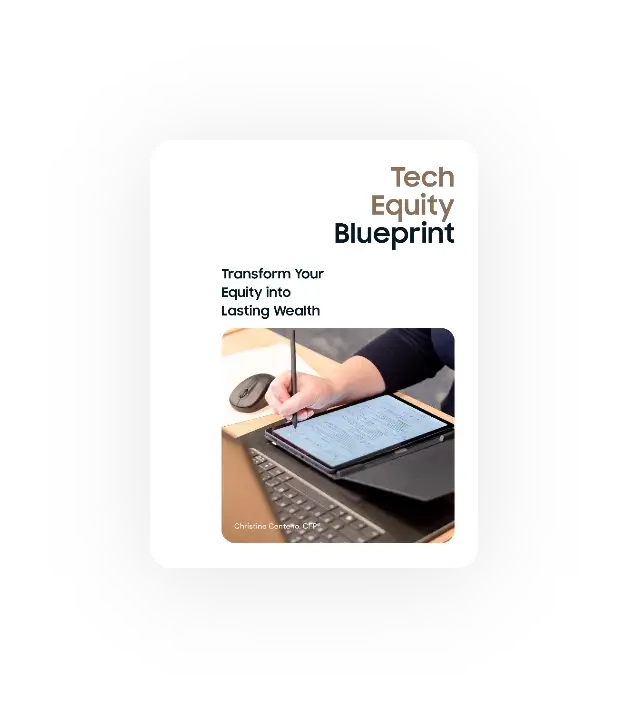BLOG / Mindset
7 Steps to Upgrade Your Money Mindset This Year

The new year often presents an opportunity to develop healthy money habits and set financial goals for the year ahead. Yet if you’ve ever started the year with the best of intentions only to revert to your old ways by February, you know how challenging change can be. In fact, research shows that of those adults who set New Year’s resolutions, 23% quit in the first week, and only 36% make it past the first month.
Of course, success means something different to everyone. But if you continually struggle to achieve your financial goals, your money mindset may be what’s holding you back.
What Is a Money Mindset?
Your money mindset refers to your core beliefs about money, as well as your attitude towards it. It subconsciously influences how you earn and manage money and can ultimately determine how financially successful you are.
For many of us, our parents’ attitude towards money, our upbringing, and our personal experiences shape our financial beliefs. Unfortunately, these beliefs don’t always serve us as adults. The good news is there are steps you can take to upgrade your money mindset, so you can make 2023 your most prosperous year yet.
To achieve your financial goals, consider taking the following steps to upgrade your money mindset this year:
#1: Get Clear on Your Values
To upgrade your money mindset, the first step is to get clear on your values. Values are the things you believe to be important, that guide your priorities and decisions.
Everyone has values, but not everyone does the work of identifying what they are and why. This can be problematic since people tend to be happier and more fulfilled when their money habits are aligned with their values. If you’re not sure what your values are or simply need some prompting, the Life Values Inventory is a free online tool that can help you identify what’s most important to you.
Once you’ve identified your core values, see how they line up with your current money habits. For example, if you value adventure and exploration, you’d likely expect to spend a good portion of your discretionary income on travel.
On the other hand, if most of your discretionary spending is on material items you don’t need, your money habits may not align with your values. Instead, consider shifting your spending habits towards things that bring you joy and ultimately reflect the life you want.
#2: Avoid Comparing Yourself to Others
A key component of identifying your core values is honoring what’s true to you. In other words, don’t let the opinions of others influence your financial goals and aspirations.
There’s a reason Theodore Roosevelt said, “Comparison is the thief of joy.” When we focus on what others have, we can’t tune in to what matters most to us.
As you take steps to upgrade your money mindset, be honest about what financial success means to you. For example, security and peace of mind may make you happier than a fancy new car or designer purse.
Ultimately, defining success on your terms—not your neighbors’ or social media connections’—can help you prioritize your financial goals and feel better about your money in general.
#3: Focus on Gratitude
In positive psychology research, gratitude is strongly and consistently associated with greater happiness, more fulfilling relationships, and better health. Put differently, “What you appreciate, appreciates.”
Stephen Covey wrote in The 7 Habits of Highly Effective People that humans are conditioned to have a scarcity mindset. Meaning, most of us are taught to believe there’s only so much to go around, and another person’s gain is our loss.
When this manifests itself in your personal finances, it can cause you to dwell on short-term threats rather than long-term goals. Alternatively, when you’re grateful for what you have, you begin to develop an abundance mentality—the belief that there are plenty of resources to go around.
Indeed, this simple shift can go a long way if you want to upgrade your money mindset. If you find yourself operating from a scarcity mentality, try keeping a gratitude journal. Over time, you’ll start to focus on what you have—not on what you lack. And what you focus on expands.
#4: Let Go of Limiting Beliefs
Whether you’re aware of them or not, you may have limiting beliefs that are keeping you from reaching your financial goals. And while there are countless limiting financial beliefs, certain beliefs about money tend to be more pervasive and harmful than others.
Some examples of limiting financial beliefs include:
More money means more problems.
Making lots of money is a rich person’s game.
It’s selfish to care about money.
Money doesn’t buy happiness.
Saving is more important than investing.
Many of us are unaware of how these scripts can influence our financial habits and decisions. Acknowledging your limiting financial beliefs—and taking the necessary steps to unlearn them—may be key if you want to upgrade your money mindset.
#5: Get Comfortable with Being Uncomfortable
In most cases, investing your money in stocks and other growth-oriented assets is necessary to outpace inflation over time and achieve your financial goals. However, the cost of investing is uncertainty.
Indeed, investing may cause discomfort and even distress at times. Yet that doesn’t mean you should avoid it altogether.
According to market researcher Dalbar’s annual Quantitative Analysis of Investor Behavior (QAIB) report, investors frequently underperform broad market benchmarks and their own investments due to poorly timed, emotionally driven investment decisions. This doesn’t just cause frustration; it can cause you to fall short of your financial goals.
If you want to upgrade your money mindset, you must learn to get comfortable with being uncomfortable. That means not reacting to every negative headline and market correction that comes your way.
Instead, let your long-term financial plan guide your decision-making, and focus on the things you can control—for example, contributing regularly to savings, minimizing investment expenses and tax consequences, and keeping debt to a manageable level. Over time, these behaviors will help get you closer to your financial goals than overreacting to negative events will.
#6: Know Your Why
Another way to upgrade your money mindset is to identify your “why.” In other words, why is it important to you to be financially successful?
Perhaps you want to retire by age 60 so you can spend more time with your children and grandchildren or travel the world with your partner. Or maybe your goal is to buy a second home in your favorite vacation spot so you can enjoy it more often.
Maybe you simply want to live your life free from money concerns. No matter your why, identifying the real reason you want to be financially successful can help you stay motivated and committed to your goals—even when you don’t feel like it.
#7: Hire a Coach or Trusted Financial Advisor
Lastly, consider enlisting the help of a financial professional to upgrade your money mindset. A financial coach or advisor can help answer your questions, point out your blind spots, and importantly, hold you accountable for your habits and decisions so you can achieve your goals.
You may want to consider partnering with a financial advisor who focuses on both the technical and emotional aspects of financial planning and money management. As the founder of Simplicity Wealth Management, I’m passionate about helping people upgrade their money mindset and make smarter financial decisions. To this end, I’m currently enrolled in a business and mindset coaching program so I can provide our clients with the holistic advice and personalized financial planning solutions they’re seeking.
Simplicity Wealth Management is a fee-only financial planning firm based in Richmond, Virginia and serving clients nationally. Our clients are busy Tech Professionals with equity compensation who are seeking a long-term financial partner. To learn more about how we help our clients plan for the future and feel better about their money, please contact us. We’d love to hear from you.


